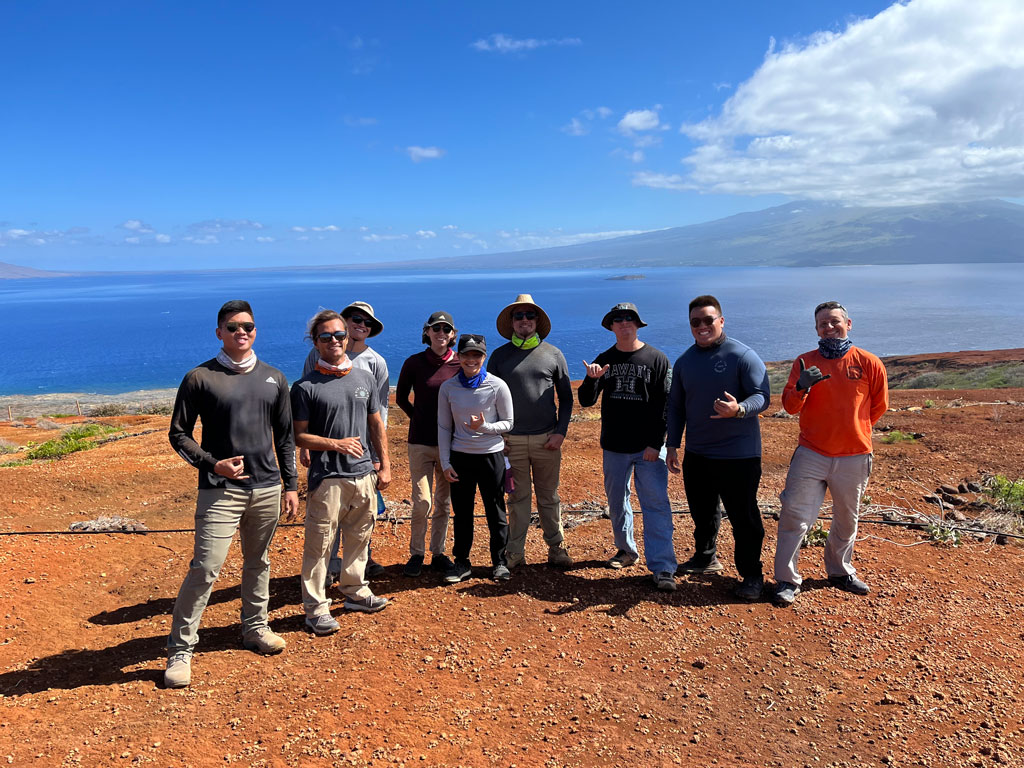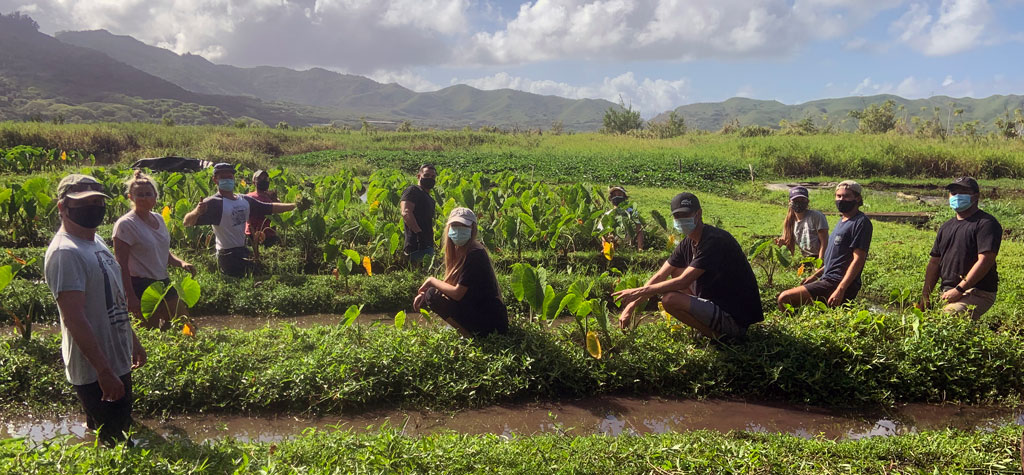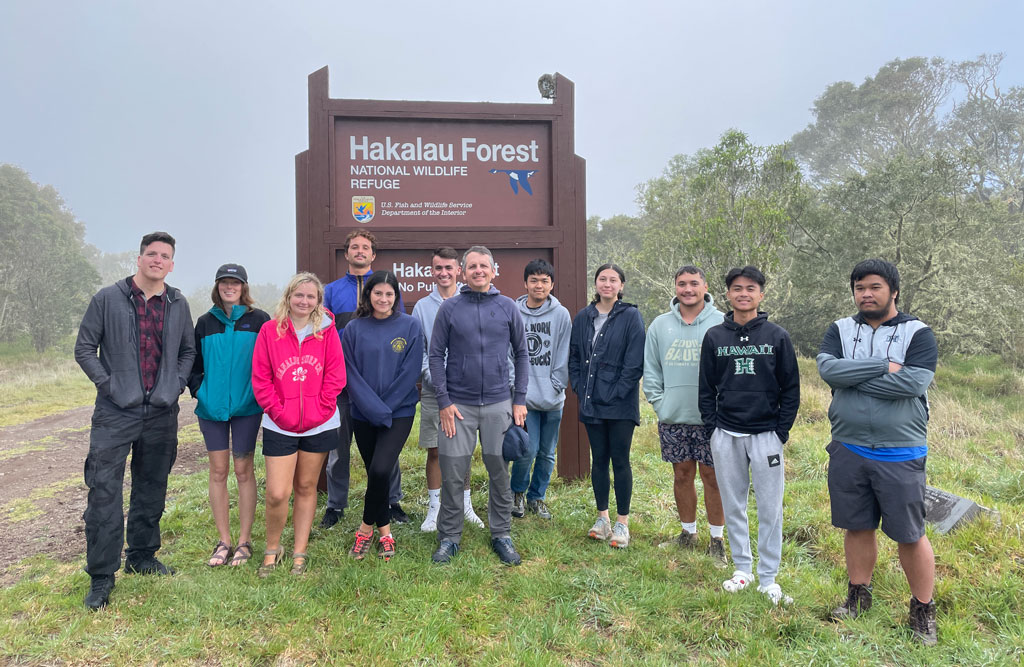Sowing the Seeds for Food Sovereignty in Detroit
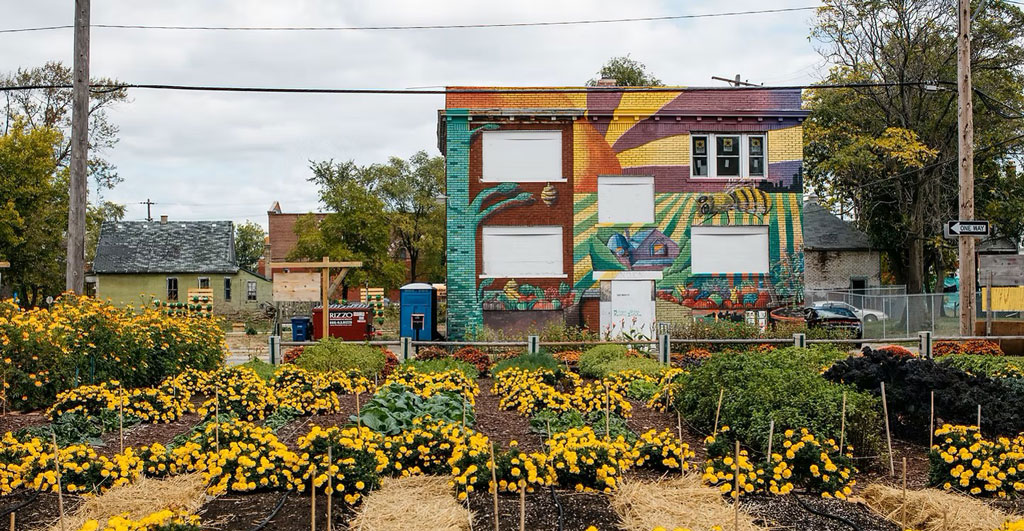
Urban agriculture is blossoming in Detroit, gaining recognition for its “green revolution,” through the rise of urban gardens and farms. With a total of 139 square miles or over 100,000 empty lots being vacant, this provides an opportunity to incorporate green spaces into communities throughout the city.
Urban gardening isn’t new to Detroiters. During the economic crisis of 1893, “Potato patches” helped feed hungry families and taught people how to grow their own food during times of social and economic crises. Later, in the 1970s, Mayor Coleman Young’s “Farm a Lot” program set an ambitious goal of transforming 3,000 empty lots into urban gardens. In the late 1960s the Black Panther party served breakfast to children in Black communities — highlighting the racialized gaps in funding from the United States government. The connections among community, mutual aid, and growing and providing food go far back in Detroit. Rather than working against each other, cooperatives and mutual aid programs ensure that groups can pull resources together to beat the system at its own game.
Detroit’s history of gardening, farming, and giving to neighbors shows how communities can move beyond food justice and into food sovereignty. Food justice addresses hunger at a basic level; food sovereignty takes it up a level to define, own, and dictate a food system. This in turn provides the earth with increased resilience to crises and climate impacts, in addition to promoting autonomy for communities. According to shakara tyler, co-executive director of the Detroit Black Community Food Sovereignty Network, part of creating a just society and systems means, “shifting from extractive economy and reinvesting into the regenerative economy.”
The growth of urban agriculture in Detroit is a testament to the resilience and innovation of its people. Initiatives such as the Oakland Avenue Urban Farm and Detroit Black Community Food Sovereignty Network are prime examples of how community-based organizations can catalyze change, serving as educational platforms for sustainable living. Explore gardens and organizations below to see how modern food sovereignty is inspiring Detroiters to create a deep praxis within other justice movements across local and state-wide levels.
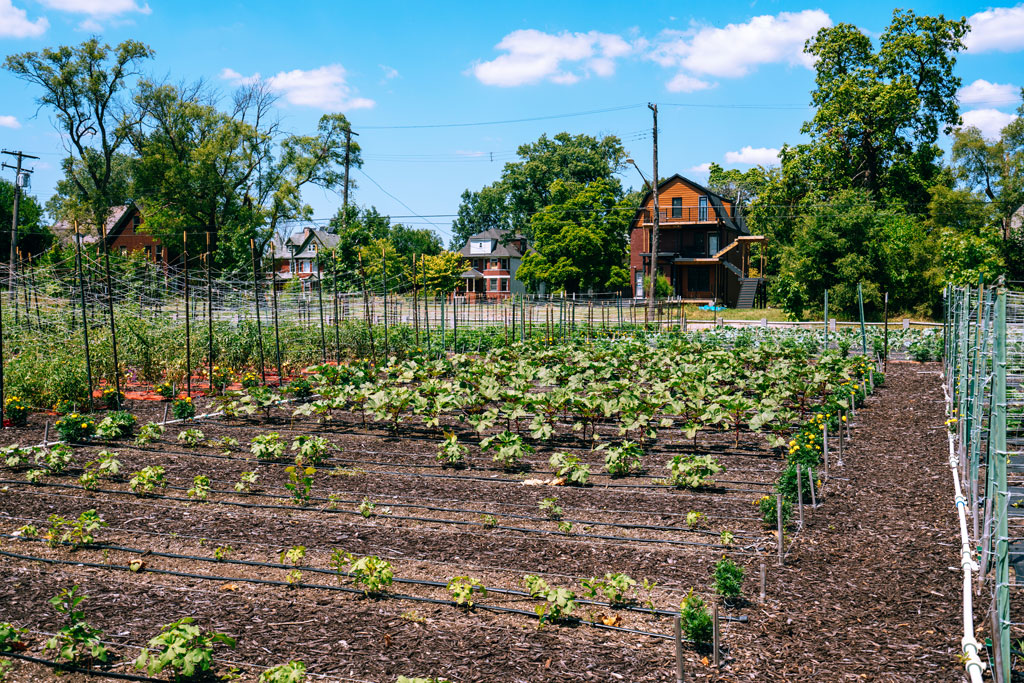
Michigan Urban Farming Initiative
7432 Brush St, Detroit, MI 48202
Based in Detroit’s North End community, Michigan Urban Farming Initiative’s (MUFI) redevelopment of a three-acre area in Detroit’s North End, is being positioned as an “epicenter of urban agriculture.” With the goal of creating a sustainable “agrihood” with multiple projects, the campus is divided into thirds: production farming, interactive agriculture, and hardscaped spaces, such as their Community Resource Center. Since operating out of their new headquarters, MUFI has been able to grow and distribute over 50,000 pounds of produce (grown using organic methods) to over 2,000 households within 2-square miles at no cost to the recipients.
Oakland Avenue Urban Farm
9227 Goodwin St, Detroit, MI 48211
Operating out of Detroit’s North End neighborhood since 2010, the Oakland Avenue Urban Farm (OAUF) is “cultivating healthy foods, jobs, and active cultural spaces.” The “Farm” grows over 33 varieties of vegetables and fruits and operates a “Harvest on Demand” option with local farmers markets, allowing neighbors to have consistent access to produce. In addition to partnering with local chefs and nonprofits to distribute tens of thousands of hot meals across the city, OAUF provides training opportunities, manages a community land trust, and brings together youth to improve learning and leadership skills.
Keep Growing Detroit
1445 Adelaide St, Detroit, MI 48207
Keep Growing Detroit (KGD) is working to cultivate a food sovereign city where the majority of fruits and vegetables consumed by Detroiters are grown by residents within the city’s limits. Their Garden Resource Program (GRP) supports urban gardening in the city by providing high-quality resources to family, community, school, and market gardens located in Detroit, Highland Park, and Hamtramck. Participants receive seeds, transplants, personalized garden assistance from staff, and a connection to an incredible network of gardeners, farmers, and advocates for a thriving food system across the city.
Detroit Black Community Food Sovereignty Network
11000 W Mcnichols Rd Ste 103, Detroit, MI 48221
Another non-profit that aims to amplify and create sustainable and equitable food systems is the Detroit Black Community Food Sovereignty Network (DBCFSN). The 7-acre urban “D-Town Farm” grows more than 36 different fruits, vegetables, and herbs with cultural and social significance, with the intention of farming what people want to eat and in high demand. Their work to shift the understanding of food, is a way to have sovereignty and learn about the importance of these systems. In addition to providing security, DBCFSN co-founded the Detroit Black Farmer Land Fund with KGD and OAUF to support rebuilding black land wealth. Since 2020, over 239 awards have been made to residents, businesses, and organizations.
North End Agri-Arts Alley
Currently under-going construction
In March 2023, the city announced four new Arts Alley locations in North End, Detroit. Specifically, the North End Alley will be the first Agri-Arts alley as part of a federal grant to transform dilapidated alleys into artistic oases. Anchored by the Oakland Avenue Urban Farm in partnership with artists from the Oakland Avenue Artists Coalition, this green alley will complement the Oakland Avenue Farmer’s Market, North End Resource Center, Oakland Avenue Cooperative Greenhouse, and Black Bottom Garden Center. Major construction is currently underway and is expected to be completed in late Spring 2025.
Urban farms and gardens are not just places to grow food; they are hubs of community activity, education, and empowerment. While the challenge remains to make these green spaces accessible to all, efforts are being made by the city to provide urban agriculture government guidance and infrastructure. In September 2023, the city of Detroit named Tepfirah Rushdan, former co-director of Keep Growing Detroit, its first director of Urban Agriculture. Over the past decade, the movement has seen substantial growth, transitioning from a few community gardens to a network of over 2,00 gardens and farms engaging nearly 20,000 Detroiters as of 2023.
Watch the webinar recording “Building Black Food Sovereignty in Detroit,” featuring shakara tyler, as part of our Preparing for the Detroit 2025 Annual Meeting webinar series.
You can register for the 2025 Annual Meeting field visit “Feeding a City: The Geography of Urban Food Systems” hosted by the Food and Agriculture Specialty Group to further explore Detroit’s urban food system landscapes.

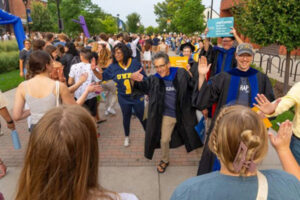




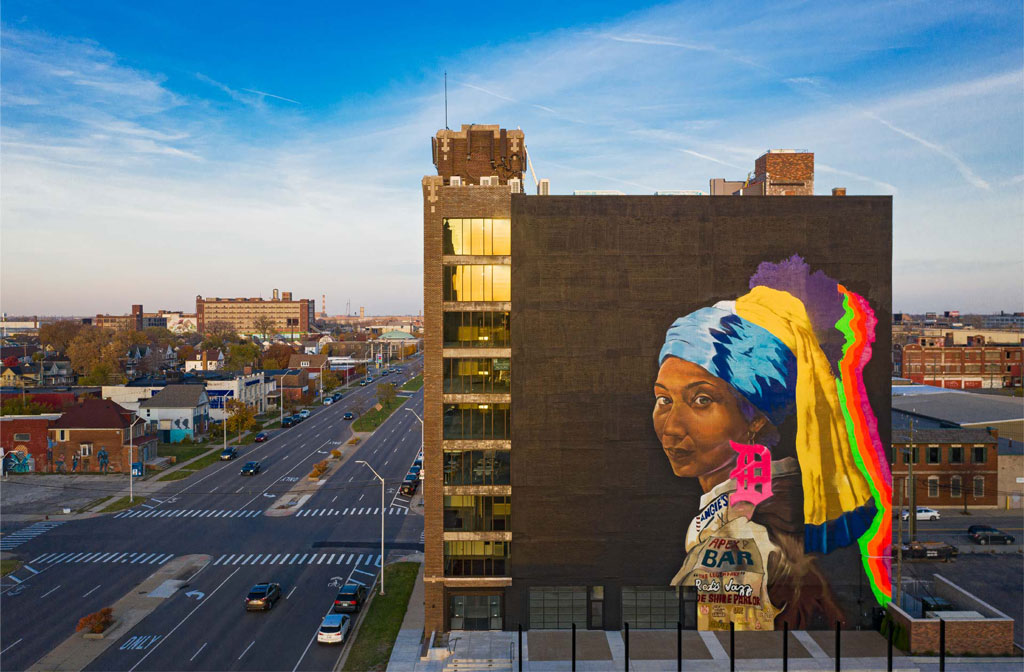

 Nora Butter (she/her) is a junior at George Washington University pursuing a dual B.A. in Environmental Studies and Geography, with minors in Geographic Information Systems (GIS) and Sustainability. Her areas of interest include environmental justice, geomorphology, biogeography, sustainable city planning as well as mapping for representation and aid. In her free time, she enjoys attending concerts, baking, and musical theater. As an Ohio native that grew up in a car-heavy town, Nora enjoys exploring Washington, D.C. via public transportation and loves riding the metro. She’s excited for this summer and the research that follows!
Nora Butter (she/her) is a junior at George Washington University pursuing a dual B.A. in Environmental Studies and Geography, with minors in Geographic Information Systems (GIS) and Sustainability. Her areas of interest include environmental justice, geomorphology, biogeography, sustainable city planning as well as mapping for representation and aid. In her free time, she enjoys attending concerts, baking, and musical theater. As an Ohio native that grew up in a car-heavy town, Nora enjoys exploring Washington, D.C. via public transportation and loves riding the metro. She’s excited for this summer and the research that follows!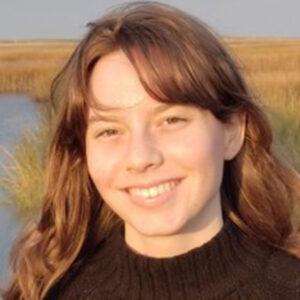 Shayla Flaherty is a senior at Bridgewater State University, pursuing a B.S. in Geography with a concentration in Environmental Planning and Conservation. Her areas of interest include GIS, natural resource conservation, coastal zone management, and ecosystem ecology. Outside of academics, she enjoys painting, dancing, and golfing. She is excited to be working as the AAG’s Media and Communication intern.
Shayla Flaherty is a senior at Bridgewater State University, pursuing a B.S. in Geography with a concentration in Environmental Planning and Conservation. Her areas of interest include GIS, natural resource conservation, coastal zone management, and ecosystem ecology. Outside of academics, she enjoys painting, dancing, and golfing. She is excited to be working as the AAG’s Media and Communication intern.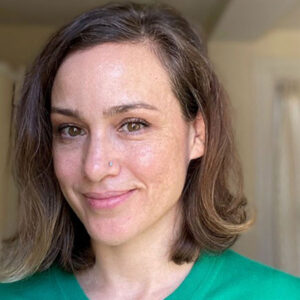 AAG is pleased to welcome Jennifer (Jenni) Jones as the newest addition to our staff as Membership Services Coordinator.
AAG is pleased to welcome Jennifer (Jenni) Jones as the newest addition to our staff as Membership Services Coordinator.